Is it smelled or smelt? When trying to describe the past tense form of the base word “smell,” what is the correct spelling?
Learn how to correctly use and spell “smelled” or “smelt” in this short guide…
What are irregular verbs?
Irregular verbs are words that end in “-ed” or “-d” to form its past tense form of the verb. For examples, “talk” and “talked.” When someone “talked” to another person, they are referring to an event that occurred in the past.
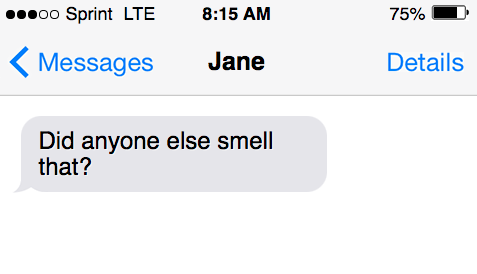
Examples:
- I talk.
- I talked
- I drive.
- I drove.
Is “smelt” and “smelled” an irregular verb?
“Smelled” is an irregular verb because it ends in “-ed.” This is an easy way to help remember which form to use. For example, in American English, we would say that we “talked” to someone.
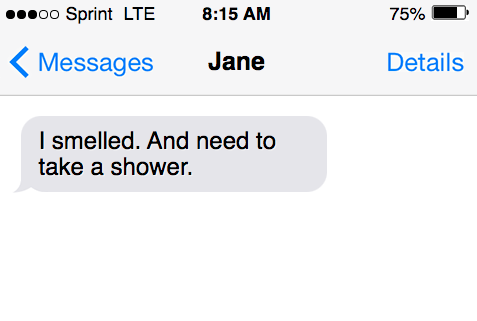
Let’s look at an example sentence:
“I talkt to someone the other night who was very interesting to me.”
This is incorrect because “talkt” is not a word.
The correct form would be, “I talked to someone the other night who was very interesting to me.”
Ending the irregular verb in “-ed” makes it both grammatically correct and easy to comprehend.
Definition of “smelled”
According to Merriam-Webster, the definition of “smelled” is to “perceive the odor or scent of through stimuli affecting the olfactory nerves.”
The definition of “smelt” is to “extract (metal) from its ore by a process involving heating and melting.”
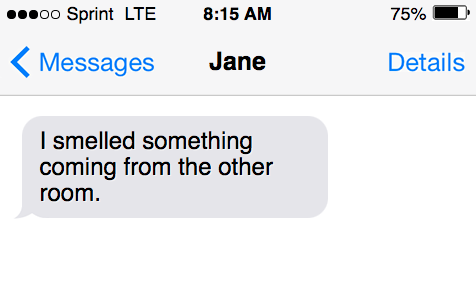
Difference between “smelled” and “smelt?”
“Smelled” is the preferred usage of the past tense form of the base form “smell.” For example, “to smell.” Or “to have smelled something.”
While “smelt” is used in the past tense of the word “smelled” in British English, speakers in North America rarely use the word.
In American and Canadian English, the verb “smell” makes “smelled” the correct past participle form to use. Learn more about what a past participle form is here.
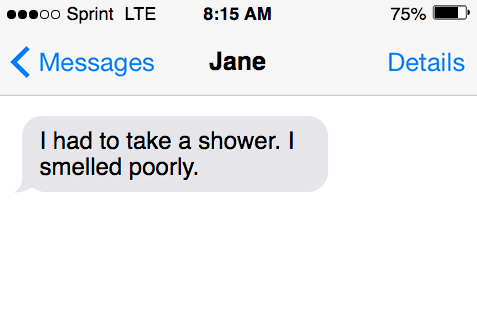
The British can use “smelled” and “smelt” interchangeably. While “smelt” is not the correct form and language to use in American English, it can be used in British English.
For example:
- “I smelled alcohol on someone’s breath.”
- Europe: “Smelt the food coming from the other room.”
The rhyming jocular expression, “whoever smelt it, dealt it” is a slang form of referring to someone who has passed gas. And is blaming the person that smelt the smell first.
When to use “smelled”
Use “smelled” whenever referring to the base form of “smell” in the past participle sense. Rather, when referring to the act of smelling something in the past.
For example, “I smelled something in the back yard and went to investigate. I didn’t find anything that could help me.”
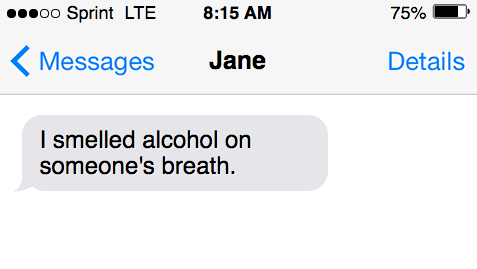
When to use “smelt”
Use “smelt” when referring to the fish, iron working, or when visiting Europe. Outside of the United States, “smelt” can get used as the regular form and irregular form of the past participle tense of the verb “smell.”
For example, “The woman smelt something coming from the back of the home. Immediately went to investigate and found that there was burning wood.”
Other meanings of “smelt”
There are a few other meanings of the word “smelt” that can get confusing. For example, “smelting” is the act of melting metals in order to merge them together. It is defined as “extractive metallurgy to product a metal from its ore.”
Iron working: The act of “smelting” or “to smelt” is when a person may fuse ores, usually with metals in order to connect them.
Silvery fishes: A “smelt” are fishes of the family Osmeridae found in fresh waters in the Northern Hemisphere.
A “smelt” is a type of North American fish that can be consumed, fished for, and caught.
How to remember which word to use
Here’s an easy trick to remember which form to use. First, use the form “smelled” at all times when you live in North America.
If you’re in Europe, you can freely use “smelled” or “smelt” interchangeably when referring to the base form and past participle of the verb “smell.”
Use a common sentence to help to remember which form to use. For example, “I smelled the flowers coming out of the florist for blocks.”
When we change the word “smelled” for the word “smelt,” we can see that it doesn’t look correct.
For example, the incorrect form would be, “I smelt the flowers coming out of the florist for blocks.”
Sources
- What Is an Irregular Verb? Definition and Types Explained
- Smell Definition & Meaning – Merriam-Webster
- Smelt Definition & Meaning – Merriam-Webster
- Past Participles in English Grammar – ThoughtCo
- he who smelt it dealt it – Wiktionary
- Smelt (fish) – Wikipedia
- smelt | fish, family Osmeridae | Britannica
- Smelting – Wikipedia
Inside this article
Fact checked:
Content is rigorously reviewed by a team of qualified and experienced fact checkers. Fact checkers review articles for factual accuracy, relevance, and timeliness. Learn more.
Core lessons
Glossary
- Abstract Noun
- Accusative Case
- Anecdote
- Antonym
- Active Sentence
- Adverb
- Adjective
- Allegory
- Alliteration
- Adjective Clause
- Adjective Phrase
- Ampersand
- Anastrophe
- Adverbial Clause
- Appositive Phrase
- Clause
- Compound Adjective
- Complex Sentence
- Compound Words
- Compound Predicate
- Common Noun
- Comparative Adjective
- Comparative and Superlative
- Compound Noun
- Compound Subject
- Compound Sentence
- Copular Verb
- Collective Noun
- Colloquialism
- Conciseness
- Consonance
- Conditional
- Concrete Noun
- Conjunction
- Conjugation
- Conditional Sentence
- Comma Splice
- Correlative Conjunction
- Coordinating Conjunction
- Coordinate Adjective
- Cumulative Adjective
- Dative Case
- Determiner
- Declarative Sentence
- Declarative Statement
- Direct Object Pronoun
- Direct Object
- Diction
- Diphthong
- Dangling Modifier
- Demonstrative Pronoun
- Demonstrative Adjective
- Direct Characterization
- Definite Article
- Doublespeak
- False Dilemma Fallacy
- Future Perfect Progressive
- Future Simple
- Future Perfect Continuous
- Future Perfect
- First Conditional
- Irregular Adjective
- Irregular Verb
- Imperative Sentence
- Indefinite Article
- Intransitive Verb
- Introductory Phrase
- Indefinite Pronoun
- Indirect Characterization
- Interrogative Sentence
- Intensive Pronoun
- Inanimate Object
- Indefinite Tense
- Infinitive Phrase
- Interjection
- Intensifier
- Infinitive
- Indicative Mood
- Participle
- Parallelism
- Prepositional Phrase
- Past Simple Tense
- Past Continuous Tense
- Past Perfect Tense
- Past Progressive Tense
- Present Simple Tense
- Present Perfect Tense
- Personal Pronoun
- Personification
- Persuasive Writing
- Parallel Structure
- Phrasal Verb
- Predicate Adjective
- Predicate Nominative
- Phonetic Language
- Plural Noun
- Punctuation
- Punctuation Marks
- Preposition
- Preposition of Place
- Parts of Speech
- Possessive Adjective
- Possessive Determiner
- Possessive Case
- Possessive Noun
- Proper Adjective
- Proper Noun
- Present Participle
- Prefix
- Predicate



